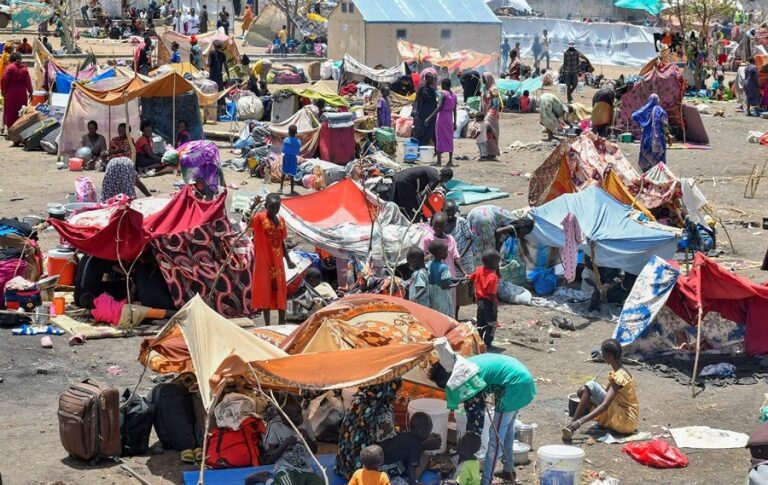UNHCR decries life saving aid cuts to Sudan
- Also witnessed was the massive destruction caused by the war, with vast needs and high levels of suffering among a population which has been out of reach to humanitarians for months.
- During the two-day mission to Omdurman, which hosts over 12,000 refugees and more than 54,000 internally displaced people, UNHCR met with local officials and people impacted by the conflict to identify needs and understand the protection risks.
Displaced families, including Sudanese and refugees who were in Sudan before the war, told UNHCR of their struggles to get enough food due to soaring prices, leading to fears of children becoming malnourished. Children have no access to schools, or places to play, and they are distressed by the sounds of clashes.
The displaced people reportedly lack adequate shelter, with many living in overcrowded conditions in gathering sites located mainly in schools. While two hospitals remain open, there is not enough medicine, especially for those with chronic illnesses.
While pregnant women are not able to access prenatal care. People also shared serious concerns for their safety, reporting increasing sexual violence as well as limited legal support. Many are severely traumatized.
UNHCR identified relevant national agencies, NGOs and other community groups on the ground to whom we could offer support and supplies.
Beyond Khartoum State, escalating hostilities in Darfur’s El Fasher city are aggravating the already perilous protection situation for civilians.
According to reports, tens of villages have been targeted, some razed to the ground, killing innocent people and destroying public property and crops.
Indiscriminate violence, including sexual violence as well as cases of separated and missing children, are on the rise. Movement restrictions on key roads are preventing people from fleeing to safer areas, forcing them to shelter in severely overcrowded displacement sites or open spaces, adding to risks.
UNHCR continues to call for the safety of civilians, safe access for aid agencies so that support and supplies can be delivered and, above all, for a cessation of hostilities. Humanitarian partners also need more support to boost their capacity to respond.
Working with partners, UNHCR support its people and continues to operate wherever it has safe access.
“In Khartoum, Darfur and Kordofan State, we are working with local partners, refugee leaders and community-based protection networks to monitor needs and assist where we can,” is said in a statement.
It added, “We are also present in Red Sea, Northern, White Nile, Blue Nile, Gedaref and Kassala states, which host hundreds of thousands of refugees already in the country prior the conflict”.
Nearly 6.7 million people have been internally displaced in Sudan, and the situation remains dangerous and volatile, said agencies say.
The over 920,000 refugees in Sudan, mainly from South Sudan, Eritrea and Ethiopia, include over 200,000 who have been displaced several times within the country since the start of the war.
A year on, thousands continue to leave Sudan daily in search of safety in neighbouring countries. To date, 1.8 million people have crossed into Chad, Egypt, South Sudan, Ethiopia, and the Central African Republic.
As the humanitarian situation continues to worsen, financial resources needed to meet needs across Sudan and in neighbouring countries are dangerously insufficient.
To date, only 10 per cent of the $2.6 billion required to reach over 18 million people with life-saving assistance within Sudan have been received, and only 8 per cent of the $1.4 billion financial requirements outlined in the 2024 Regional Refugee Response Plan for Sudan have been met.
(ST)

